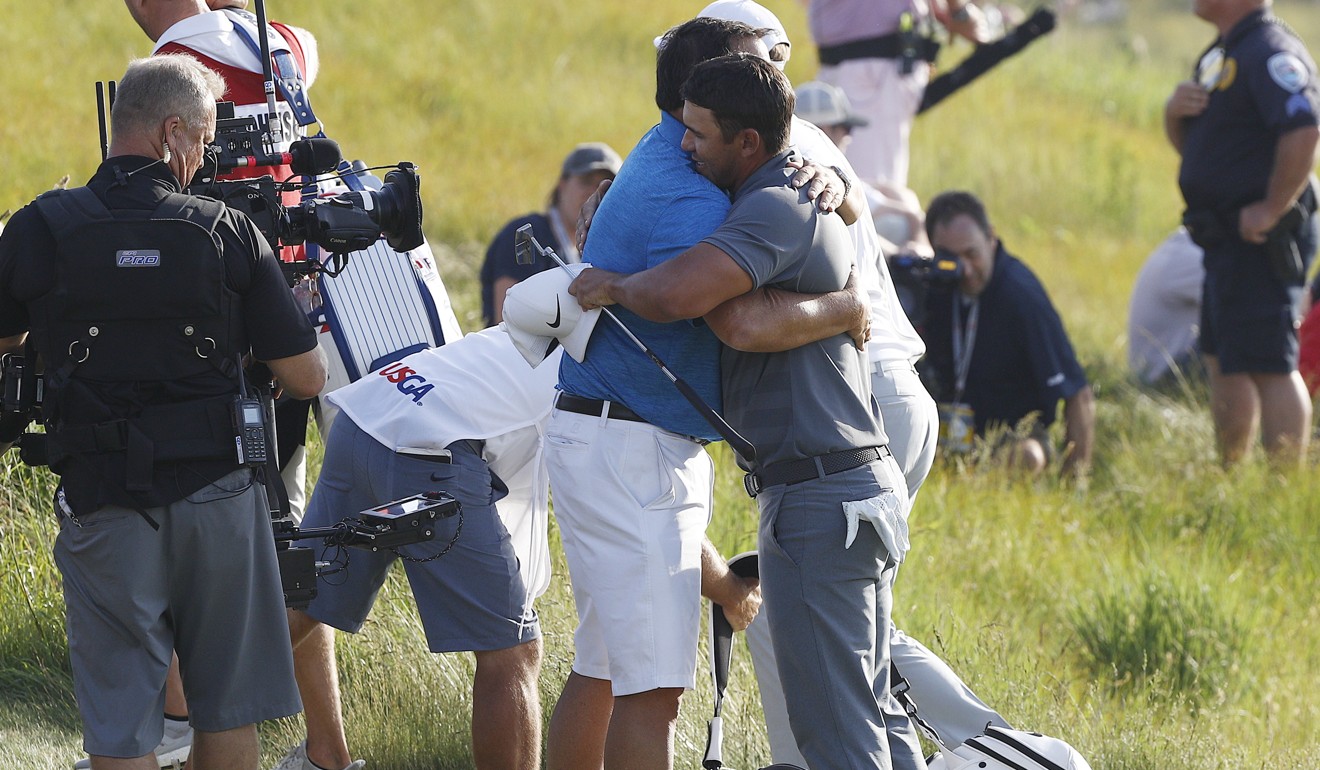
Brooks Koepka stands tall at a US Open where the whiners go home early
American keeps his nerve through four brutal days at Shinnecock Hills to become the first player in almost 30 years to go back to back
The whiners went home early, beaten down by Shinnecock Hills and the USGA’s clumsy efforts to turn the venerable golf course into something it was never meant to be.
Brooks Koepka stood tall, holding a US Open trophy high for the second straight year because he knew what it took to win.
“You got to have some grit, some heart,” Koepka, 28, said the night before. “I mean, I’ve won one, so why not win another?”
Why not, indeed. Whining is for losers, and the man who emerged from the chaos to become the first player to win back-to-back Opens in nearly 30 years didn’t have time for it from the moment he set foot on Shinnecock Hills.
He went about his business while others fretted about green speeds and the wind. He kept his mouth shut as others complained the pins were too severe and the greens too bumpy.

The message Koepka sent on Sunday was that winners are tough, and winners are resilient. Winners also understand how to adapt to changing conditions, even if they were mostly the fault of man, not nature.
Yes, USGA officials were at their incompetent worst when they set up Shinnecock Hills like a roller coaster, with scores peaking one day and plummeting the next.
And, yes, they allowed the course to get away from them again despite promises that what happened the last time the Open was held here, in 2004, wouldn’t happen again.
But that is pretty much to be expected when they believe wrongly, perhaps – that their mission is not only to protect the game but to vigorously guard against low scores in the national championship.

“I just want to thank the USGA for holding an incredible tournament,” he said. “Year in and year out they do an incredible job.”
It wasn’t as if everyone in the field didn’t know this could be a brutal Open. It often is, and this year’s was more brutal than most, with scores in the 80s more common than scores in the 60s.
Unfair or not – and there surely was some ridiculousness about the whole thing – everyone plays the same golf course. A firefighter from Massachusetts played it well enough to win the low amateur medal, and the pro who bounced around mini tours finding his game played it well enough to edge out England’s Tommy Fleetwood by one shot.

“I guess we can call it the pendulum effect when it gets too much on one side and people get scared and it goes back to the other way,” Henrik Stenson said.
Unlike many of his fellow competitors, Koepka didn’t complain once, despite being seven over at one point on Friday.
“I enjoy the test. I enjoy being pushed to the limit,” he said. “Sometimes you feel like you are about to break mentally, but that is what I enjoy. I enjoy hard golf courses. I enjoy playing about the toughest in golf you are ever going to play.”
The complaints were hardly unexpected. Pro golfers by their nature tend to complain about things, whether it’s the speed of the greens or the make of their courtesy car.
Jack Nicklaus used to say he liked hearing others complain about course set-ups because he knew they wouldn’t be serious competitors. So it was revealing when Koepka said much the same thing on the eve of this Open.
Yes, the USGA gave them lots to whine about. Some of the criticism was fair, and some was not.
But in the end there was one player who didn’t whine.
And he was the one holding the trophy in his hands.
Associated Press

